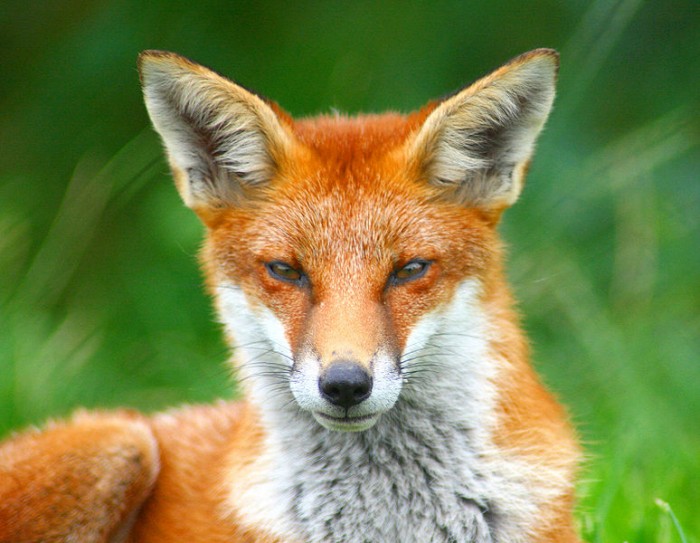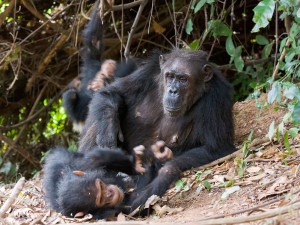UK Carnivores Make a Comeback
There has been a remarkable comeback of many of the UK’s carnivore species, with new research showing that their population numbers have improved since the 1960s as they recover from harmful human activities that have now stopped.
 Image: By Keven Law (Looking Foxy....) [CC-BY-SA-2.0 (http://creativecommons.org/licenses/by-sa/2.0)], via Wikimedia Commons
Image: By Keven Law (Looking Foxy....) [CC-BY-SA-2.0 (http://creativecommons.org/licenses/by-sa/2.0)], via Wikimedia Commons Once-endangered carnivorous mammals such as otters, polecats and pine martens have staged a remarkable comeback in Britain in recent decades.
Research published in Mammal Review last month found that the status of Britain’s native mammalian carnivores (badger, fox, otter, pine marten, polecat, stoat and weasel) has “markedly improved” since the 1960s. The only exception is wildcats. The research was conducted by the University of Exeter, Vincent Wildlife Trust, the Centre for Ecology and Hydrology and Scottish Natural Heritage.
The species have largely “done it for themselves” by recovering once harmful human activities had been stopped or reduced. Hunting, trapping, control by gamekeepers, use of toxic chemicals and destruction of habitats contributed to the decline of most predatory mammals in the 19th and early 20th Centuries.
“Unlike most carnivores across the world, which are declining rapidly, British carnivores declined to their low points decades ago and are now bouncing back. Carnivores have recovered in a way that would have seemed incredibly unlikely in the 1970s, when extinction of some species looked like a real possibility,” said lead author Katie Sainsbury, from the University of Exeter.
Survey reports from the last 40 years were used, and the researchers compared changes in the species’ distribution extent and population sizes. They also reviewed human activities that have helped or hindered Britain’s native carnivores in recent decades.
Some examples of individual species recovery highlights the good news. Otters have almost completely recolonised Great Britain. Badger populations have roughly doubled since the 1980s. Polecats have expanded across southern Britain from Wales, and pine martens have expanded from the Scottish Highlands. Fox numbers have risen since the 1960s, though an apparent decline in the last decade may be linked with dwindling rabbit numbers.
Professor Robbie McDonald, head of the University of Exeter’s Wildlife Science group and co-author said: “Most of these animals declined in the 19th Century, but they are coming back as a result of legal protection, conservation, removal of pollutants and restoration of habitats. The recovery of predatory mammals in Britain shows what happens when you reduce the threats that animals face. For the most part these species have recovered by themselves. Reintroductions have also played a part. Fifty one pine martens were recently translocated to Wales from Scotland and these martens are now breeding successfully in Wales. Otter reintroductions helped re-establish the species in the east of England.”
Wildcats are the exception to the pattern of recovery. The species is now restricted to small numbers in isolated parts of the Scottish Highlands. Some estimates suggest there are as few as 200 individuals left. Their decline has largely been caused by inter-breeding with domestic cats, leading to loss of wildcat genes. The status of stoats and weasels remains obscure.
The researchers say that thought must now be given to how growing numbers of these animals interact with humans. Some of the species can pose problems for gamekeepers, anglers and farmers, and work must be done to find ways to prevent conflict and allow long-term co-existence as the species expand their ranges and numbers. At the same as, of course, we humans are expanding our own range and number – we must show tolerance. As Professor McDonald says, “People are key to carnivore recovery.”





Sorry, comments are closed on this post